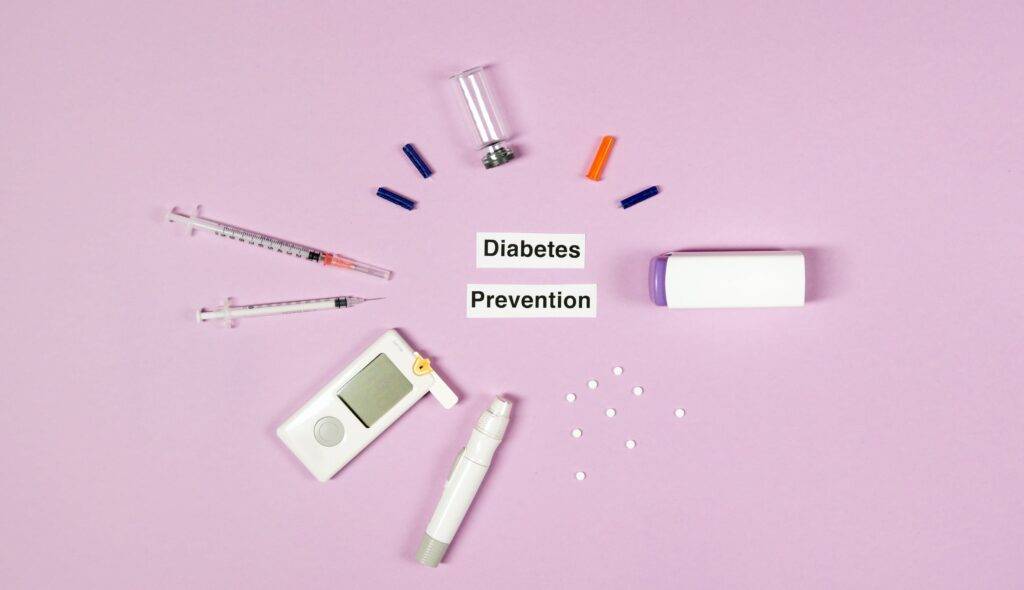What are diabetes early signs?

Common early signs of diabetes include frequent urination, extreme thirst and hunger, .unexplained weight loss, fatigue, irritability, blurry vision, and slow-healing sores. If you experience any of these symptoms it is important to speak with your doctor to determine the cause. Diabetes can be managed through lifestyle changes such as dietary modifications and regular exercise, as well as through medications and monitoring blood sugar levels. Paying attention to your body’s signals can help you detect diabetes at its earliest stages and begin making the necessary lifestyle changes to manage it properly.

By understanding the early signs of diabetes and being proactive about your health, you can ensure that this condition does not affect your life or the lives of those around you. If you have any questions or concerns, be sure to speak with your doctor or healthcare provider for more information and support. With the proper awareness and treatment, you can take control of your well-being and live a healthy life
Nobody should have to suffer from diabetes. By understanding the early signs of this condition and taking proactive steps to ensure your health, you can prevent it from affecting your life or the lives of those around you. Pay attention to changes in behaviour or physical symptoms, and don’t wait until it’s too late to seek medical attention. Speak with your doctor or healthcare provider if you have any questions or concerns. With the proper awareness and treatment, you can take control of your well-being and live a healthy life.
Following early signs of diabetes, you just need to know
What are diabetes’ early signs?
1. Increased thirst and urination

Diabetes is a serious condition that affects many lives but can be managed with care and attention. Knowing the early signs of diabetes is key in keeping track of your health, so it is important to know what to look for. People who are showing potential diabetes early signs may feel increased thirst and urination as well as blurred vision, fatigue, and sudden weight loss or gain. If any of these symptoms become apparent for an extended period, it is important to seek medical advice immediately. Spotting the signs early could assess your risk earlier, helping ensure you get the best outcomes from diagnosis and treatment.
2. Dry mouth and extreme hunger
Dry mouth and extreme hunger are other common signs of diabetes. If you find yourself feeling unusually thirsty and hungry, this could be the body’s way of alerting you to a potential problem. People with diabetes may also experience frequent skin infections and slow wound healing. Blurry vision is another warning sign, as well as unexplained weight changes. If you or someone you know is experiencing any of these signs, it is important to seek medical advice as soon as possible.
3. Unexplained weight loss
Unexplained weight loss is another common sign that something may be wrong with the body’s natural ability to regulate blood sugar levels. For people with diabetes, the body is unable to use glucose properly which can lead to sudden and dramatic weight changes. In addition, fatigue or irritability may set in as well. Any of these early signs should be taken seriously, and if they continue for an extended period of time medical attention should be sought immediately.
By taking the time to understand the early signs of diabetes, you can take control of your health and ensure that if any symptoms do become apparent, they are dealt with quickly and properly. Diabetes is a serious condition but should not be considered a death sentence. With proper medical advice, lifestyle changes, and monitoring of blood sugar levels, diabetes can be effectively managed. Don’t wait until its too late, pay attention to your body’s signals today.
If you have any questions about diabetes or the potential early signs, speak with your doctor for further information and advice. With a proactive approach to health and well-being, you can make sure that diabetes is not something that affects you or your loved ones.
4. Fatigue and irritability
Fatigue and irritability can also be signs of diabetes, as the body struggles to regulate blood sugar levels. People with diabetes may feel constantly tired due to their bodies not getting enough glucose, leading to a lack of energy. They may also experience mood swings or bouts of irritability. If these symptoms become frequent and prolonged, medical advice should be sought immediately.
Besides that, people who are showing potential diabetes early signs may experience frequent skin infections or slow wound healing. If you notice any of these issues, it is important to seek medical attention right away. As with any health condition, the earlier the diagnosis is made the better the chance of successful treatment and management. Being aware of the early signs of diabetes can help you catch this condition in its earliest stages, allowing for timely and appropriate medical care.
It is also important to be aware that a person with type 2 diabetes may not show any symptoms at all during the early stages. This is why it’s so important to get regular check-ups and screenings, even if you are not experiencing any potential diabetes warning signs.
By understanding the early signs of diabetes and being proactive about your health, you can take control of your well-being and make sure that this condition does not affect your life or the lives of those around you. If you have any questions or concerns, be sure to speak with your doctor or healthcare provider.
5. Blurred vision

Blurred vision is another potential early sign of diabetes. Normally, the body stores glucose in the lens of the eye and uses it to keep the eye healthy and functioning properly. However, if glucose levels are too high, this can cause blurry vision due to excess glucose being stored in the lens. Other symptoms related to blurred vision may include altered vision, double vision, and difficulty seeing in the dark. If you are experiencing any of these symptoms, it is important to seek medical attention immediately for proper diagnosis and treatment.
By understanding the early signs of diabetes and being proactive about your health, you can ensure that this condition does not affect your life or the lives of those around you. If you have any questions or concerns, be sure to speak with your doctor or healthcare provider. Don’t wait until it’s too late, pay attention to your body’s signals today and take action to stay healthy.
6. Slow healing of cuts or bruises
Another potential symptom of diabetes is the slow healing of cuts or bruises. When glucose levels remain high, the body’s ability to repair itself may be impaired. This can result in infections, poor circulation, and slower healing times for cuts and bruises. If you notice that your wounds are not healing as quickly as they should, it is important to seek medical attention immediately.
7. Yeast infections or genital itching in women
Yeast infections or genital itching in women may be an early symptoms of diabetes. When sugar levels remain high, yeast can grow faster and irritate the vaginal area. This symptom can also manifest itself as skin rashes or other areas with skin folds such as armpits, groin, and neck. If you experience any of these symptoms, it is important to seek medical attention right away.
By understanding the early signs of diabetes and being proactive about your health, you can ensure that this condition does not affect your life or the lives of those around you. If you have any questions or concerns about these symptoms, be sure to speak with your doctor or healthcare.
Frequently Ask Question
1. How can I tell if I have diabetes?
The only way to know if you have diabetes is to get tested. The most common test for diabetes is the A1C test, which measures your average blood sugar level over two or three months. Other tests include fasting glucose tests, oral glucose tolerance tests, and random glucose tests. If any of these tests show high levels of sugar in your blood, you may have diabetes.
2. What can I do to prevent diabetes?

The best way to prevent diabetes is to maintain a healthy lifestyle. This includes eating a balanced diet, getting regular physical activity, maintaining a healthy weight, and avoiding smoking or excessive drinking. It is also important to have regular health screenings and check-ups with your doctor. By following these tips, you can help lower your risk of developing diabetes.
3. How can I manage my diabetes?
If you have been diagnosed with diabetes, there are steps you can take to manage your condition. This includes regularly monitoring your blood sugar levels, eating a healthy diet, exercising regularly, and taking any medications prescribed by your doctor.
It is important to have regular check-ups with your healthcare team and stay up-to-date on the latest treatment options so that you can keep your diabetes under control.
By understanding the early signs of diabetes and taking proactive steps to ensure your health, you can help prevent it from affecting your life or the lives of those around you. Don’t wait until it’s too late to seek medical attention — speak with your doctor or healthcare provider if you have any questions or concerns. With the proper awareness and treatment, you can take control of your well-being and live a healthy life.
3. What are the long-term effects of diabetes?
Diabetes is a chronic condition with long-term effects, including an increased risk of heart disease, stroke, kidney disease, and certain types of cancer. It can also cause nerve damage (neuropathy), eye problems such as blindness or vision loss, foot problems that can result in amputation, and sexual dysfunction in both men and women. The high sugar level in the blood can affect the tiny blood vessels in the eyes and may cause blurry vision
It is important to speak with your doctor about these risks and how to reduce them through lifestyle changes and proper management of the condition. Additionally, it is important to take measures to actively prevent complications such as regular check-ups with your doctor, monitoring your blood sugar levels, eating a healthy diet, exercising regularly, and taking any medications prescribed by your doctor. With the right awareness and treatment, you can help keep your diabetes under control and avoid long-term effects.
4. What lifestyle changes can I make to manage my diabetes?

Making lifestyle changes is an important part of managing diabetes. This includes eating a healthy diet, exercising regularly, maintaining a healthy weight, and avoiding smoking or excessive drinking. Other steps you can take to manage your diabetes include regular health screenings, monitoring your blood sugar levels, and taking any medications prescribed by your doctor.
Additionally, it is important to stay up-to-date on the latest treatments and speak with your doctor or healthcare provider if you have any questions or concerns. By taking proactive steps to ensure your health, you can take control of your condition and live a healthy life.
5. Long-term effects of diabetes can include kidney damage, heart disease
Its effects as stroke, nerve damage, blindness or vision loss, foot problems, and sexual dysfunction. It is important to speak with your doctor about these risks and how to reduce them through lifestyle changes and proper management of the condition.
Additionally, it is important to take measures to actively prevent complications such as regular check-ups with your doctor, monitoring your blood sugar levels, eating a healthy diet, exercising regularly, and taking any medications prescribed by your doctor. With the right awareness and treatment, you can help keep your diabetes under control and avoid long-term effects.
6. What is diabetes?
Diabetes is a chronic condition that occurs when the body can’t make enough insulin or can’t use the insulin it produces effectively. Insulin is a hormone that helps to regulate blood sugar levels in the body. When these levels become too high, it can lead to serious health complications, including heart disease and stroke.
7. What are the risk factors for diabetes?
Risk factors for diabetes include obesity, physical inactivity, family history of the disease, age, ethnicity, and race. People with pre-diabetes (high blood sugar levels that are not yet high enough to be diagnosed as diabetes) may also be at risk and life-threatening complications.
Conclusion: What are diabetes’ early signs
The early signs of diabetes include frequent urination, intense thirst and hunger, unexplained weight loss, fatigue, blurry vision, slow-healing sores or cuts, and tingling in the feet and hands. If you experience any of these symptoms, it is important to speak with your doctor as soon as possible so that they can help determine the cause and provide you with the proper treatment.
By understanding the early signs of diabetes and taking proactive steps to ensure your health, you can help prevent it from affecting your life or the lives of those around you. With the right awareness and treatment, you can take control of your well-being and live a healthy life.
Reference: What are diabetes’ early signs
About 30.3 million adults in the U.S. have diabetes, according to the Centers for Disease Control (CDC), and 90% of them have Type 2 diabetes – their bodies don’t handle insulin well and can’t maintain normal blood sugar levels.
External Link: https://www.cdc.gov/diabetes/basics/diabetes.html
High blood sugar levels can affect blood circulation and damage the nerves
External Link: https://www.cdc.gov/diabetes/library/features/diabetes-nerve-damage.html
Mood changes that are associated with type 2 diabetes usually appear with other signs of diabetes, not on their own.
External Link: https://www.ncbi.nlm.nih.gov/pmc/articles/PMC3317401/
Ask your eye care professional to help you find a low-vision NIH external link and rehabilitation clinic. Special eye care professionals can help you manage vision loss that cannot be corrected with glasses, contact lenses, medicine, or surgery. Special devices and training may help you make the most of your remaining vision so that you can continue to be active, enjoy hobbies, visit friends and family members, and live without help from others.
External Link: https://www.nei.nih.gov/learn-about-eye-health/eye-conditions-and-diseases/low-vision
Anyone can develop type 2 diabetes, but certain factors can increase a person’s risk.
External Link: https://www.niddk.nih.gov/health-information/diabetes/overview/risk-factors-type-2-diabetes



